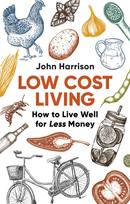When meal kits first emerged on the market about a decade ago, they received a lot of attention. The idea was simple. Instead of having to choose between exhausting yourself cooking, eating microwave meals, or getting takeaways every night, you could get the best of all worlds. Meal kit services provided a box full of already-prepped ingredients and a simple recipe. All you had to do was apply the finishing touches and stick it in the oven.
The benefits of meal kits were clear to anyone who works full-time. You could eat fresh and healthy, delicious meals at your convenience rather than relying on fast food. Furthermore, you no longer had to worry about fresh ingredients rotting in your fridge every month.
Since then, the popularity of meal kits has flagged somewhat. Not all meal kit suppliers came through on their promises – some provided subpar meals or were unreliable – although most truly delivered. But even with the best meal kit companies, some people worried about the cost.
Different meal kits in the UK come at vastly different price points, especially if you want to try out gourmet food. However, when looking at the midrange options, the cheapest meal kits cost around £5 per serving, with some going as high as £10 per serving.
Many meal kit providers offer subscription services, which cost less in the long run. These services provide weekly deliveries of meals that will last you for the week and are ideal for those who have predictable schedules. If you are buying for a family, the price per serving goes down, as you would expect if you were buying the ingredients yourself.
Still, taking all this into account, meal kits have not proven particularly cheap. Price points have turned off many potential buyers. But this does not necessarily mean that you cannot save money on meal kits. While they do cost more than you would spend on the basic ingredients, there are potential financial benefits to using meal kits.
How you can save with meal kits
This comparison only really works if we are assuming that the alternative is to cook wholesome meals from scratch. Of course you will save money if you eat fast food, but it comes at a cost to your health and wellness.
Buying meal kits rather than cooking from scratch provides two main financial benefits.
Firstly, time is money. Consider how much you get paid per hour at work. It is possible you value your time at an even higher value than your company pays you. If you think about the time you spend cooking and buying ingredients as billable hours, you are saving money on your labour. True, you are not technically saving actual money, but you do open up your time for what really matters to you.
Essentially, the extra you pay for meal kits is buying you time. Your bank account is not going to grow from it (unless you spend that time on a side hustle), but you do bank a far more valuable resource.
Secondly, you can save actual money on ingredients. When you go shopping, you do not have to spend on a whole range of fresh produce that you won’t end up using. Instead, you are getting exactly what you need. You save money and, perhaps more importantly, there are environmental benefits to this, especially in a country that wastes millions of tonnes of food every year.
So, regarding the question of whether you will save actual money by buying meal kits or subscribing to a service, the answer is that you might. It largely depends on how efficient your shopping habits already are, as those who tend to waste more will end up saving more.
Ultimately, the financial benefits are indirect, but that does not mean they are any less pertinent. You spend less on groceries while gaining more time every evening.
Meal kits are not just a hit in the UK. They have made their way around the world, where the financial benefits might be more pronounced.
Meal kits around the globe
How does the rest of the world compare when it comes to potentially saving money with meal kits? To get a clear perspective, we need to view prices in context. Average earnings in the UK are somewhat lower than other developed nations.
The average earner in the UK earns about US$500 less than the average earner in Canada, and about $2000 less than the average earner in the US. While this seems like a remarkable disparity, keep in mind that the cost of living in the US far exceeds the cost of living in the UK or Canada, without universal health care and other basic needs seen to.
Similarly, while the average earner in Australia earns about US$1000 more than someone in the UK, the cost of living in Australia is one of the highest in the world. So, while meal kits in both the US and Australia are equivalent in pricing to their UK counterparts, context distorts this comparison.
If we are taking a holistic view, a comparison with Canada provides a far more useful marker of the value of meal kits. After all, when taking into account free government services, the average Canadian has similar expenses to the average UK resident.
Meal kit costs in Canada come to about £7 per serving, which is comparable with the average price of meal kits in the UK. However, as we have mentioned, average income in Canada is somewhat higher than the average income in the UK. Furthermore, the cost of living in major UK cities is generally higher than the cost of living in major Canadian cities.
Meal kits in Canada may therefore be better value for money than in the UK, although the difference is not huge. As is the case in the UK, money saved with meal kits in Canada is mostly indirect, through saved time and wasted ingredients. Ultimately, the value of these indirect savings really depends on what you value.
The bottom line
The bottom line is that meal kits are not, in themselves, going to save you money directly. A meal kit meal may be slightly more expensive than one you prepare and cook yourself. However, your time is worth money, and you save a lot of time on both shopping and cooking. You are also helping save the environment by not letting fresh produce in your fridge go to waste every week.
When it comes down to it, your decision whether to use meal kits should not be solely financial. Convenience and health are likely far bigger factors. For most of us, the alternative to meal kits is not to cook meals for ourselves but to buy fast food or microwave dinners.
The good news is that meal kit services are improving, especially in the context of 2020, as people rely more than ever on deliveries. Hopefully this will translate into better prices in the long run, as operations become more streamlined and these services become more mainstream. For now, you can satisfy yourself with the big range of different options of meals based on taste and dietary preference.


